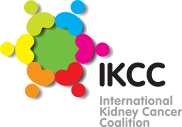FREQUENTLY ASKED QUESTIONS (FAQ)
2024 IKCC Global Patient Survey on Kidney Cancer and Kidney Growths
Q: What is the Global Patient Survey on Kidney Cancer and Kidney Growths (GPS)?
A: The 2024 IKCC Global Patient Survey on Kidney Cancer and Growths is patient-centred survey designed to identify geographic differences in patients’ experiences. It highlights best practices and unmet needs related to patients’ access to care, assesses quality of life, determines the prevalence of shared decision-making, and measures involvement in clinical trials. This is the 4th GPS.
Q: When will the survey be open?
A: The survey will open on 23 September and close on 15 November.
Q: How many languages will the GPS be available in?
A: The survey will be available in 16 languages including:
- Dutch
- English
- English
- French
- French
- German
- Hindi
- Italian
- Japanese
- Korean
- Polish
- Portuguese
- Portuguese
- Spanish
- Swedish
- Turkish
Q: Who can complete the survey?
A: The survey is open to anyone who has experience with kidney cancer or kidney growths, whether they have received a diagnosis or is a caregiver to someone. People who completed previous surveys are invited to participate again.
Q: How long does the survey take? Does it all need to be completed at once?
A: The survey takes approximately 15 – 20 minutes to complete. If it can’t all be completed at once participants can save their responses part-way and return to complete the survey later by simply exiting and returning to the survey page. This happens automatically using browser cookies.
Q: What’s new about the 2024 GPS?
A: In addition to core questions, in 2024, the survey will also explore new topics including time to diagnosis, treatment adherence to oral therapies, kidney function and patient preferences.
Q: When will the results be available?
A: After the survey closes in November, the data will be analysed and in 2025 the results will be shared in Reports that looks at trends, themes, and geographic variations and measure progress on our goal of reducing the burden of kidney cancer. In addition, Country-Specific Reports will be created when more than 100 participants from one country complete the survey.
Q: Why is the survey done? Why every 2 years?
A: The information gathered in the Global Patient Survey helps local patient organisations and IKCC understand the patient experience and how the patient experience is changing over time. With the information gathered, organisations can create education, awareness and advocacy programs that respond to the needs of people affected by kidney cancer.
Conducting the survey biennially (every 2 years) helps patient organisations and IKCC understand how the patient experience is changing over time.
Q: What if someone completed a survey in the past? Can they participate again?
A: Yes! People who completed previous surveys are invited to participate again.
Q: Can the toolkit materials be translated?
A: Yes! We encourage Partner Organisations to adapt and translate the toolkit materials to meet your organisational needs, and the needs of your community. The materials are meant to make talking about the GPS easier, but communications should match the needs of your local community members.
Q: What is the Seed and Grow Pilot Project Fund?
A: New in 2024, we are launching an incentive program to help encourage more people to participate in the IKCC Global Patient Survey on Kidney Cancer. For every survey completed, IKCC will allocate one Euro to the Seed and Grow Pilot Project Fund, up to a maximum of 2,000 Euros.
Q: Why is important for many people from my country to participate?
A: Understanding the how experiences of patients in one country compare to global averages can help with planning and prioritizing activities to advocating to make local improvement.
Additionally, Country-Specific Reports are created when more than 100 participants from one country complete the survey. These results can help support health technology assessment and efforts to improve access to treatment and care. Results from Country-Specific Reports can also be submitted to local publications and conferences in partnership with local health professionals and other experts. This can be done in the form of written submissions, abstracts, posters and more.
